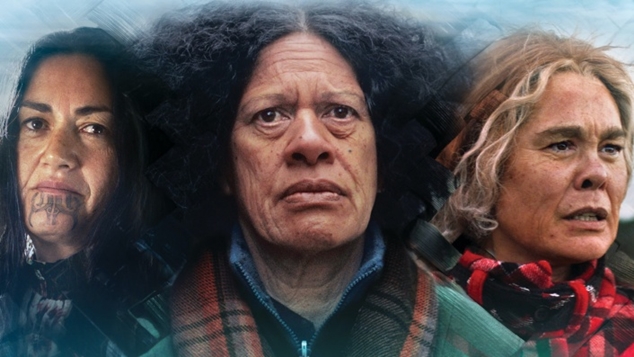
Cousins | Dir: Ainsley Gardiner & Briar Grace-Smith | ★ ★ ★ ★ ★
The final scene is the key to this wonderful film, and fortunately I was accompanied by a friend from New Zealand who was able to explain the powerful image of three symbolic colours swirling in the muddy water where three young girls are swimming and having fun.
Based on the book by Patricia Grace, the film tells the story of three cousins – Mata, Makareta and Missy. As carefree young girls, they dance and twirl in their best dresses that are coloured yellow, red and green. Life takes the three of them on very different journeys but the power of love and ‘whānau’ (meaning family but more complex to include physical, emotional and spiritual dimensions) is strong and they seek to reunite.
Makareta is slightly older and she is the spoilt one who was given privilege and an education, but she runs away from her family who try to arrange a marriage to study law. Missy is the rebellious one but she becomes the dutiful one who takes on the role of guardian of the family land.
Meanwhile, Mata is taken away from her family by her father and eventually ends up in a home for desolate children where she is raised as May. It is not only Australia that has the shame of taking children away from their culture and indoctrinating them under the auspiciousness of ‘care’.
Years pass and the narrative catches up with the girls when they are young and carefree, as teenagers when May is allowed to visit her grandparents and then as women in their sixties. All brilliantly depicted by the nine actors including Briar Grace-Smith who plays the adult version of Makareta. Grace-Smith also co-directs the film that she adapted her mother-in-law’s book for the screen.
Cousins is a powerful testament to the effects of institutionalisation on Māori children and their families, showing many parallels with the institutionalisation of indigenous children in other English-speaking countries built on colonisation. With images that will haunt the audience for some time, it is also a powerful testament to the power of whānau.
Lezly Herbert
You can support our work by subscribing to our Patreon
or contributing to our GoFundMe campaign.






